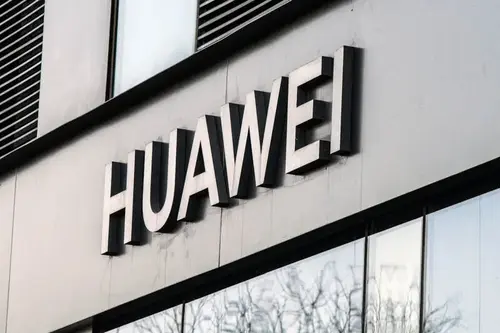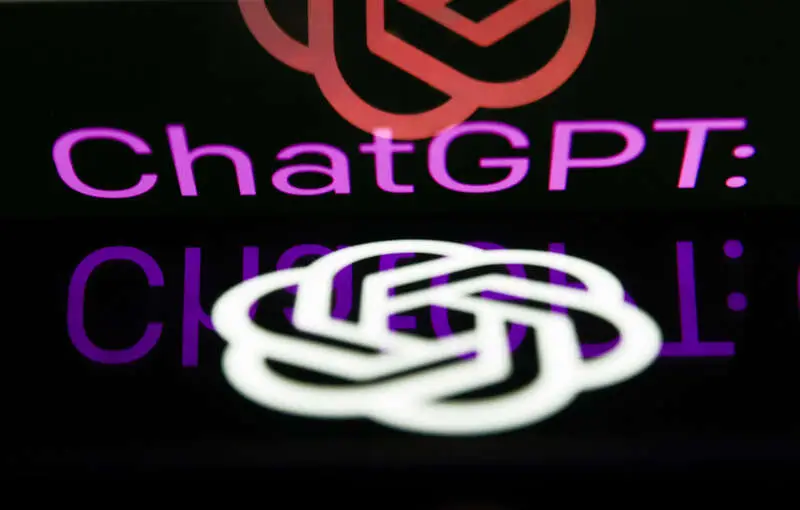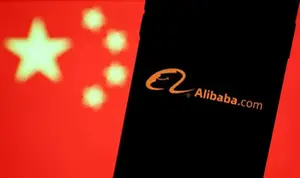
Huawei turns to patents for a lifeline — including those in the U.S.
BEIJING — Chinese telecommunications giant Huawei is turning to patents for a lifeline as the company seeks to forge a path forward in advanced chip technology — the prized tech which the U.S. is trying to cut off from China.
In 2022, Huawei announced it signed more than 20 new or extended licensing agreements for its patents. Most were with automakers, for 4G and LTE wireless technology, the company said.
related investing news


Mercedes Benz, Audi, BMW and at least one U.S. automaker were among the licensees, said Huawei's global intellectual property head Alan Fan. He said he wasn't able to say which American company.
Huawei has more on the way — and filed a record number of more than 11,000 patent applications with the U.S. in 2022, according to IFI Claims Patent Services. Their analysis showed just under half typically get approved each year.
But the sheer number of patents filed meant Huawei ranked fourth last year by the number of patent grants in the U.S., IFI said. Samsung was first, followed by IBM and TSMC.

"The U.S. is still a substantial market that everybody wants to have a part of," said IFI Chief Executive Mike Baycroft. "They want to make sure when they're developing those technologies that they're protecting those IP [intellectual property] rights for the U.S. market for the European market."
Over the last two years, Huawei's U.S. patents have increased the most in areas related to image compression, digital information transmission and wireless communication networks, according to IFI.
The U.S. government put Huawei on a blacklist in 2018 that restricted its ability to buy from American suppliers. By October 2022, the U.S. made it clear that no Americans should work with Chinese businesses on high-end semiconductor tech.
The potential of patents
Huawei's revenue dropped for the first time on record in 2021, and the consumer division that includes smartphones reported sales plunged nearly 50% to 243.4 billion yuan ($36.08 billion).
For Huawei, licensing its patents to other companies has the potential to claw back a bit of that revenue.
Alex Liang, partner at Anjie & Broad in Beijing, pointed out that having ceased operations in certain business areas allows the company to realize patent revenue that previously existed primarily on paper.
"Huawei's situation is similar to Nokia's when the first generation iPhone came out," Liang said. "Nokia was quickly losing market share to Apple and lots of their patents no longer [had] to be licensed in exchange for other licenses to protect their phone business."
Companies that share technical areas with Huawei ... should all beware that a giant patent monetization player is jumping into their respective pool and will make a splash.Alex Liangpartner, Anjie & Broad
Nokia generated 1.59 billion euros ($1.73 billion) in sales last year from patent licensing — about 6% of its total revenue. The company said in 2022 it signed "over 50 new patent license agreements across our smartphone, automotive, consumer electronics, and IoT [Internet of Things] licensing programs."
Nokia and Huawei extended their patent licensing agreement in December. Huawei also announced licensing deals with South Korea's Samsung and China's Oppo.
"As far as I know, Huawei is aggressively pushing for the monetization of its patents," Liang said.
"It is one of the most important [key performance indicators] of their IP department, if not yet the single most important," he said.
"So any other companies that share technical areas with Huawei — such as telecommunication, phones, IoT, automobiles, PC, cloud service, and so on — should all beware that a giant patent monetization player is jumping into their respective pool and will make a splash."
Huawei pushed back at the idea it was building a business in patent monetization.
The company's IP head Fan said his department is "a corporate function, not a business unit," and that it redirects royalties to the research departments that filed the patents to fund further research.
"We actively support patent pools and similar platforms, which license patent not just for us, but also for other innovators at the same time," Fan said in a statement.
The company previously said it expected $1.2 billion to $1.3 billion in revenue from licensing its intellectual property between 2019 and 2021. Huawei did not break down specific figures, and only said it met its intellectual property revenue expectations for 2021.
A business of that size would still be a tiny fraction of the company's overall revenue. Huawei said in December it expects 2022 revenue of 636.9 billion yuan, little changed from a year ago. Cloud and connected cars are other business areas the company has sought to develop.
Huawei has "been floundering around since the demise of their handset business," said Paul Triolo, Senior Vice President for China and Technology Policy Lead at Albright Stonebridge Group. "I don't think they had a choice in terms of sort of boosting their licensing revenue."
"The question is what do they do for 6G [in] five years?" he said. "Are they still going to play a patent game? They can't really manufacture the equipment. They're sort of stuck if they can't figure out the semiconductor piece in terms of going forward."
Still, Huawei said it spent 22.4% of 2021 revenue on research and development, bringing total category spending to more than $120 billion over the last decade.
Progress in chip tech?
Some of the research is in semiconductor manufacturing. Huawei has filed for a patent in the highly specialized area of lithography technology used for making advanced chips, according to a disclosure late last year on the China Intellectual Property Administration website.
"It's significant in the sense that each individual piece of a complicated technology like EUV [extreme ultraviolet] is not that difficult to sort of make progress on," Triolo said. "Turning that into a commercial system at scale that can boost commercially is a huge, huge task."
Right now, Netherlands-based ASML is the only company in the world that can make the extreme ultraviolet lithography machines needed to make advanced chips.
Not only did it take ASML about 30 years to develop EUV on its own, but the company had the benefit of unrestricted access to thousands of suppliers and international industry groups, Triolo said. "What China really lacks is these international consortia."
But he didn't rule out the possibility that China's national champion could help Beijing build up its semiconductor industry.
"Huawei has a very capable group of engineers," Triolo said. It's "probably a five-to-seven year process to build something commercially viable — only if everything goes well, if there's substantial funding. The Chinese government is going to have to step up here."
Other Chinese companies are also pouring resources into intellectual property.
IFI's rankings of companies' and their subsidiaries' global patent holdings showed a number of Chinese giants among the top 15, including the state research organization Chinese Academy of Sciences.
Appliance companies Midea and Gree also ranked high globally, among South Korean and Japanese heavyweights, the data showed.
"The rise in Chinese innovation has been in plain sight for a long time," said IFI CEO Baycroft. "Why shouldn't we expect that China is innovating today like everybody else? Like Japan, like Germany, everybody's in this game. It's not just the U.S."
— CNBC's Arjun Kharpal contributed to this report.






